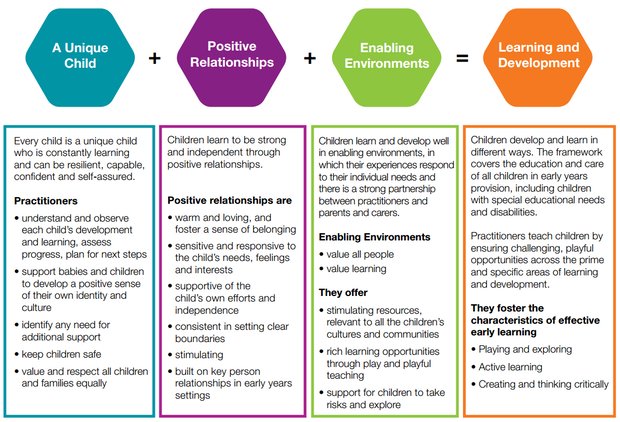Challenging the more confident learners in a play based setting
Add to My Folder
A rich and stimulating environment will help to develop all children in an Early Years setting. It is essential to ensure that staff have high expectations of all. However, how do we identify those learners that are apparently high achieving and how do we provide them with an extending and challenging learning experience?
Development Matters states that supportive practitioners, positive relationships and enabling environments are essential for a child’s development and notes that all children learn in different ways. A key point to note is that some children develop at a quicker rate than others.

Development Matters in the Early Years Foundation Stage (EYFS), 2012
Neuroscience also suggests that it is early experiences which indicate how the brain of a young child will develop. However, it is important to note that relationships, nutrition and communication also play an important part in development. During the early stages of a child’s development, positive and negative attitudes to learning are formed. Dweck (2006) highlighted ‘growth and fixed mindsets’ to illustrate this idea. A ‘growth’ mindset is the belief that you can improve your abilities though practice and effort; ‘I can do it, I can try, what might I try to solve this?’, whereas someone with a fixed mindset believes that abilities are predetermined and unchangeable. It is this positive growth mindset that many Early Years settings strive for; to see children develop a love of learning as well as making progress throughout their lives. It is also important to note that development of early language and communication may not always indicate a high achieving child, but just the differing experiences and interactions that a child has undergone in their early years. For instance, a child learning English as an additional language may struggle initially in an Early Years setting due to understanding the constructs of a new language; however, if compared to their understanding in their mother tongue, it may be found that the child is as high achieving as a native English speaker.
Extending the more confident learner in the Early Years setting is crucial. This helps prevent boredom and frustration which may result in less desirable behaviour. The aim is to have motivated and excited learners.
Already a member? Sign in below.
Published 4 October 2017
Reviews
You need to be signed in to place a review.